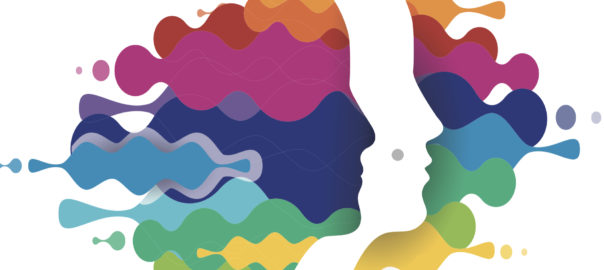Mindfulness. Consciousness. Awareness.
These are difficult terms to define, given their varying use and the different educational levels that subscribe to them. In 2017, Barbara Trube, a professor of education and an early childhood education program coordinator, published an article that addressed mindfulness practices and its affect on mentoring and teaching. Her understanding of transformative learning supported the references used to make sense of her proposed, innovative strategies. Transformative practice finds its purpose in mindfulness strategies, through the understanding that human beings attempt to make sense of their experiences, and interpret information, rather than simply acting on the judgments and beliefs of others (Trube, 2017). This method of comprehension is liberating for the educated, who understand, but to the unlearned, it’s safer to follow the beliefs and feelings of the group. Throughout history, this created tribalism, religion, political parties, and gangs. In 2021, our respective cultures are the essence of our previous group-thought processes, and certain subgroups, in relation to education, are still behind in development.
In math and reading, according to the article, “High School Seniors Aren’t College-Ready,” “46 percent of white students and 49 percent of Asian students scored at or above proficient, while only 17 percent of black students and 25 percent of Hispanic students did so” (Camera, 2016). The Journal of African American Males in Education published an article in 2010, relating to the discipline patterns for black male students and its impact on their academic achievement. After the analysis, concerning the disproportionate behavioral infraction data across the races, the findings section portrayed the understanding that black students, as a whole, receive harsher punishments than their white counterparts who commit similar disobedient behaviors (Joubert, Bonner, Lewis, & Butler, 2010). This results in the increased number of absent school days and wasted chances to engage in academic curriculum.
In my opinion, the issue of systemic racism is so deep, that only mindfulness of one’s specific situation, a dedication to education, and consistent reflection can cure a culturally inherited problem. Trube listed meaningful exercises that can be adjusted to be more culturally relevant and address our struggling black students. Trube suggests the application of awareness exercises to encourage mindfulness, through “in the moment” reflections, using the 5 senses to make connections and guide inquiry (2017). The next exercise pertains to exploration through written expression of the their current senses. For black students, I recommend that we use this moment in time to evaluate their mindset and create an agenda to execute their plans. My belief is that the pressure from the culture to conform to the methods and thinking processes of the past, ultimately poison the autonomy and ambition to blaze new paths. Another exercise in the article about mindfulness practices pertains to inquiry and finding inspiration through the identification of external content and research area experts (Trube, 2017). For our struggling black students, this intensive mental planning could be the missing conscious training that they need, to emerge from the bottom of the educational statistics.
Camera, L. (2016). High school seniors aren’t college-ready. U.S. News & World Report. https://www.usnews.com/news/articles/2016-04-27/high-school-seniors-arent-college-ready-naep-data-show.
Joubert, M., Fred A. Bonner, I. I. I., Lewis, C. W., & Butler, B. R. (2010, March 1). Directory of open access journals. Journal of African American Males in Education. https://doaj.org/article/e11c215aa020400da53c6907af90dc70.
Trube, B. (2017). Mindfulness practices in mentoring and teaching. Childhood Education, 93(2), 159-167. https://eric.ed.gov/?q=Mindful+Mentoring&pr=on&id=EJ1132700
